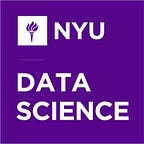Brian McFee’s Innovative Approach to Music Technology Education
Music technology and data science have begun to converge in unexpected ways, and at the forefront of this interdisciplinary fusion is Brian McFee, Assistant Professor of Music Technology and Data Science at CDS and NYU Steinhardt. McFee’s recent book, Digital Signals Theory, published by CRC Press, an imprint of Routledge, aims to demystify complex technical concepts for a diverse audience.
McFee’s work at NYU involves teaching both big data in data science and introductory digital signal processing in music technology. His book originated from the challenges he faced while teaching students from various non-technical backgrounds. “Many of them don’t consider themselves technical,” McFee explains, many of whom come from music majors rather than engineering or STEM fields. “I find myself explaining concepts like discrete Fourier transforms to students who haven’t done math since tenth grade.” The need to bridge this gap in an engaging and understandable way was the genesis of his book.
The book was born out of necessity during the pandemic, when remote learning posed new challenges. For a class that, pre-pandemic, had leaned heavily on in-person problem-solving, McFee recalls, “transitioning to a questionably synchronous education across a lot of different time zones — I knew it was going to be tough.” The new circumstances required a more accessible textbook, so McFee “took summer 2020 to just sit down and jam out this book.”
This initiative led to a fortuitous partnership with CRC Press, which allowed for the book’s unique dual existence: both as a freely available online resource and a published print version.
The online version’s interactive elements, like animated graphics and embedded audio, cater to the evolving needs of modern learners. McFee emphasizes the digital version’s strengths: “It has animated graphics and embedded audio, which you don’t get in a print book.” This approach not only makes technical subjects more accessible but also more engaging. It’s not just a book but a dynamic learning tool, bridging the gap between theory and application.
McFee’s book goes beyond being a mere academic resource. It’s a tool for empowering those who work with audio signals in research and applied fields. “A lot of people pick this stuff up as a third language,” he explains. His book provides a foundational understanding, making advanced audio processing more approachable for a broader audience.
The book is highly versatile. For academics in disciplines such as musicology or music cognition, the book breaks down complex audio processing concepts, making them accessible. For data scientists interested in working with audio data, the book provides a concise introduction to the fundamentals. But McFee’s vision also extends to settings where these topics are not commonly covered, like in community colleges. “This is not the sort of class that you typically see in a community college setting. I certainly didn’t, when I was a community college student, or later in university — we didn’t have an audio processing class.”
Through his book, McFee addresses a crucial educational gap, bridging the divide between technical knowledge and its practical application. His work exemplifies the growing intersection of music technology and data science, highlighting the importance of interdisciplinary education in these fields.
By Stephen Thomas
